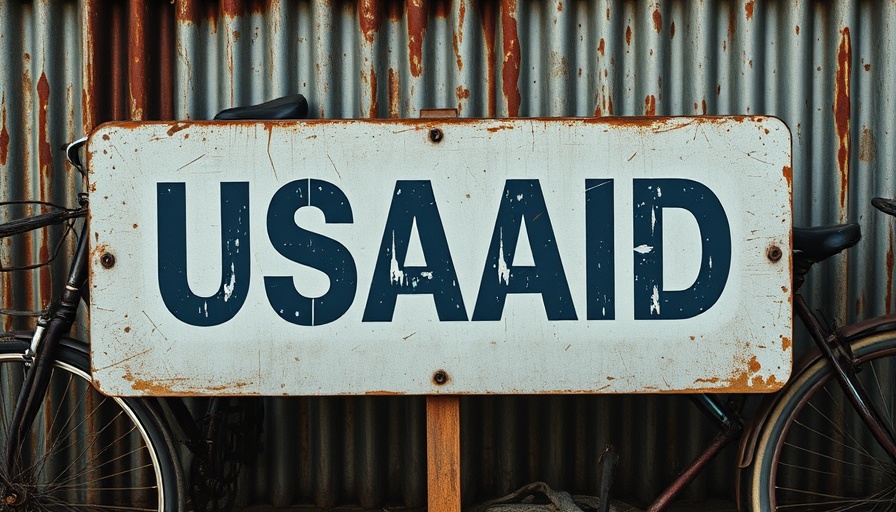
A Judge's Ultimatum: Pressure on Trump Administration to Restore USAID Funding
In a notable legal confrontation, U.S. District Judge Amir H. Ali has ordered the Trump administration to reinstate funding for the U.S. Agency for International Development (USAID) within a mere two days. This demand, which has sent ripples through Washington, comes after the administration suspended significant portions of foreign aid, affecting vital projects that rely on this funding.
Background: The Freeze on USAID
The situation unfolded after the Trump administration imposed a freeze on USAID aid early this year, citing a need to review grants and contracts. This abrupt halt has not only endangered humanitarian projects overseas but has also led to layoffs among organizations dependent on this funding. As reported, in fiscal year 2023, USAID allocated over $40 billion to support governance, health initiatives, and humanitarian assistance in approximately 130 countries. More than 25% of these resources were devoted to sub-Saharan Africa, reflecting the U.S.'s strategic interests in the region.
Legal Tension: Court Orders Ignored?
During a recent hearing, Judge Ali expressed frustration over the government’s failure to demonstrate compliance with his earlier directive to lift this funding freeze. The administration's attorney was unable to confirm whether any funds had been released. This raised concerns about the administration's respect for the rule of law, which many argue is being undermined as critical financial assistance remains indefinitely suspended.
The Stakes: Real Consequences for Aid Organizations
The implications of this funding freeze are severe. Organizations that provide food distribution, health services, and other forms of aid report having to stop projects and lay off staff, leading to what Judge Ali termed “irreparable harm.” As Abby Maxman, president of Oxfam America, noted, this violation not only disregards legal orders but also threatens the welfare of millions of marginalized populations globally.
A Broader Context: USAID's Role in U.S. Foreign Policy
USAID is more than just a funding body; it embodies the United States' approach to international relations through humanitarian aid. Its mission includes fostering goodwill and soft power in countries that are often vulnerable and in need. As tensions rise internationally, especially in contrast to authoritarian regimes like China's, maintaining robust foreign assistance can play a critical role in upholding U.S. influence around the world.
Future Predictions: The Path Ahead for USAID
As Judge Ali pushes for compliance, the legal battle may unfold further in appellate courts. Should the Trump administration fail to adhere to the court order, it risks facing contempt charges that could escalate the situation. The ramifications could extend beyond the courtroom, influencing public perception of the administration's priorities and effectiveness in handling humanitarian crises.
What Business Leaders Need to Know
For business executives and marketing professionals, the implications of USAID's funding freeze resonate with broader economic trends. The suspension of aid can lead to instability in regions where U.S. businesses might operate, and the decisions made by the government now will likely impact future opportunities and relationships. Understanding the intersection of foreign aid and business strategy is crucial as organizations adjust to a rapidly changing global landscape.
Actionable Insights: Preparing for Shifts in Global Aid
In light of this situation, business leaders should remain proactive in assessing the potential impacts of government aid cuts on international markets. Engaging in discussions about the significance of U.S. foreign aid within their corporate strategies can not only inform decision-making but also enhance long-term sustainability and ethical responsibility in their operations.
Conclusion: The Call for Action
As the situation develops, stakeholders must push for transparency and a resumption of humanitarian aid funding. The risks posed to millions due to the inactivity are significant, demanding a collective voice for change. It’s a critical moment for the business community to consider how aid policies affect their operations and the broader socio-economic fabric of regions they engage with.
 Add Row
Add Row  Add
Add 


Write A Comment